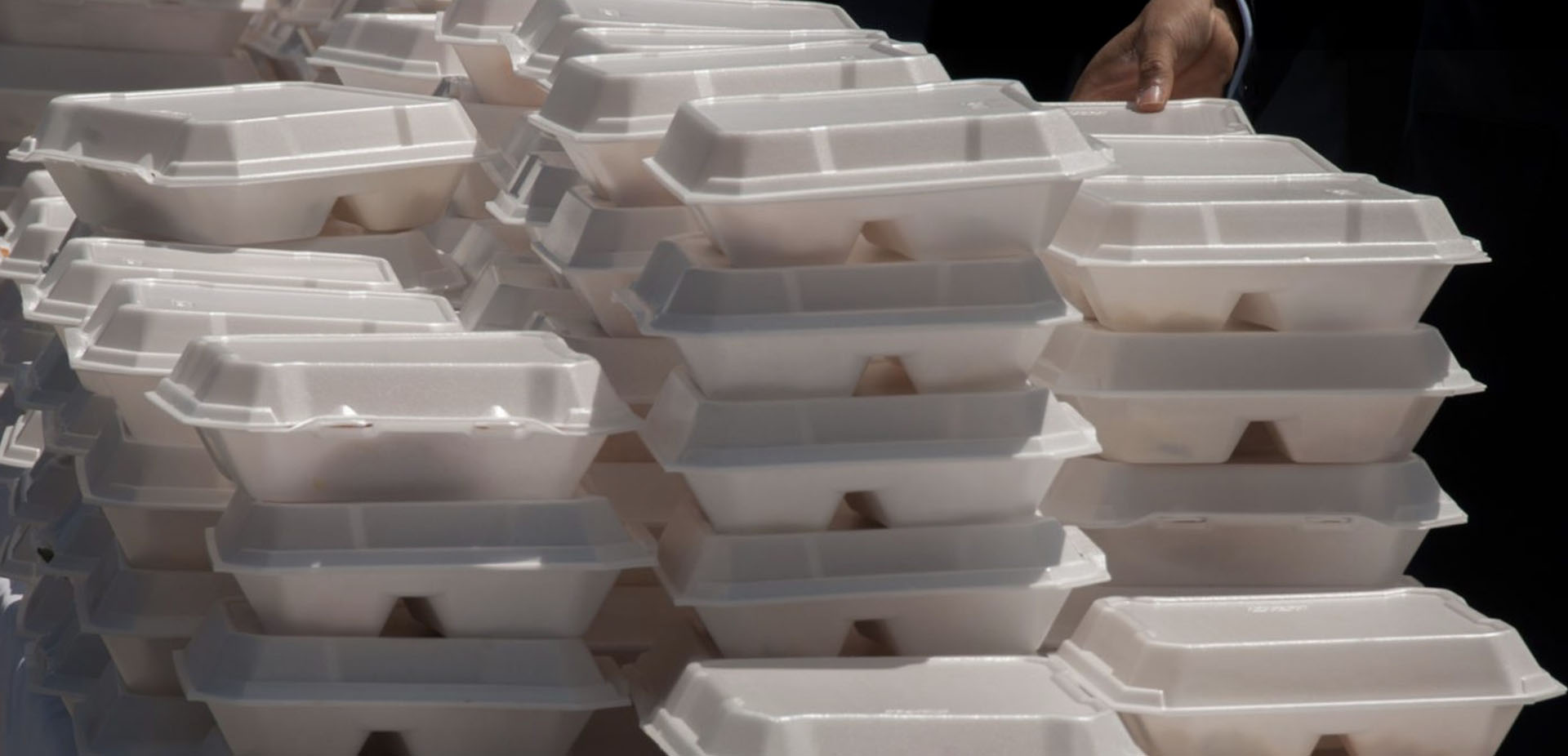So Long, Styrofoam

With no opposition from either residents or businesses, the Southampton Town Board unanimously agreed to a ban on polystyrene and plastic straws.
Come May 8, food establishments in the town will be prohibited from offering clamshell to-go containers, Styrofoam cups and coolers, packing peanuts, and plastic straws and stirrers. Cardboard, stainless steel, or bamboo products could take their place.
“This may be a small step, but I think it’s a very important step,” said Councilwoman Julie Lofstad, who sponsored the legislation. As the wife of a commercial fisherman, she said she knows well the effects of plastics in the ocean. “Our environment is everything to us, and I think anything we can do that is not going to have a harmful impact on our businesses and our residents is a no-brainer,” she said.
The town’s Sustainable Southampton Green Advisory Committee estimates town residents and visitors discard nearly 20 million plastic straws and eight million polystyrene cups per year, many of which wind up along the town’s beaches.
“Styrofoam represents 30 percent of the volume of our waste,” Councilman John Bouvier said. “It’s a huge issue, and this is a start.”
Colleen Henn, the coordinator for the eastern Long Island chapter of the Surfrider Foundation, a grassroots environmental non-profit that works to protect and preserve the world’s oceans, waves, and beaches, said since June 2017, 260 straws were found across 10 town beach cleanups. During a cleanup at Hampton Bays’ Tiana Beach two weekends ago, more than 340 pieces of polystyrene smaller than a quarter were found. In three hours, 1300 pounds of plastic trash were collected. Hampton Bays resident and Surfrider volunteer Carolyn Munaco added that 202 plastic bottles and 175 plastic bottle caps were found.
“And that was just a small area, so you know how bad it is out there,” Munaco said.
Supervisor Jay Schneiderman added he hopes legislation against the intentional release of balloons is next.
“All you have to do is see the pictures of marine life that are impacted and of course you want to change things,” he said before the unanimous vote February 12. “It’s fairly remarkable that we’ve had no one opposed to this. I think the community, through public education, is already moving in this direction. I love people thinking of our area as being environmentally responsible. It’s a place taking the steps necessary to protect our resources.”
Joe Glorioso, a member of the Sustainable Southampton Green Advisory Committee and Solid Waste Advisory Committee, said after surveying 80 restaurant owners, 95 percent agreed with the ban.
“I think our proposal will save the town money, increase our revenues from recyclables, help keep our beaches clean, and reduce the amount of plastic in our environment,” he said.
Code enforcement officers will add enforcing the ban to their list of duties, but board members are hoping residents can step in and be on the lookout for people and businesses violating the bans. Schneiderman said the Southampton Online Solutions Center could even be used to report a business that is in violation.
The legislation is applicable to all establishments, including corporate and franchise chains like McDonald’s or Dunkin’ Donuts, despite the town not hearing from owners about the now-approved amendment. Businesses will be allowed to keep 20 plastic straws on-hand to provide to those who need them to remain in compliance with the Americans With Disabilities Act.
While Councilwoman Christine Preston Scalera said it’s no secret that she has not supported bans in the past, not receiving a single letter in opposition made it easy for her to side with her other board members.
“I prefer to move forward doing incentives, because oftentimes the business community has a hard time adjusting their business models and oftentimes they can hurt as a result,” she said. “When we talked about bigger businesses being contacted and not hearing anything back, I think that’s probably a good sign, because I know that when the plastic bag ban — which is the original law that we’re amending — was sent out, I got a barrage of requests to please not do this because it would hurt their business models. I think people are coming on board. This seems like a win-win.”
Henn, who also sits on the task force to reduce single-use plastics in Suffolk County, is working with legislators to push a county-wide ban on polystyrene and plastic straws. Bans on Styrofoam-type products have been sweeping the nation, with cities like San Francisco, Portland, Miami Beach, Minneapolis, Seattle, and just this year, New York City adopting measures. Locally, East Hampton Town, East Hampton Village, the Village of Patchogue, and Huntington Village have banned polystyrene. East Hampton Village recently passed a ban on plastic straws.
desiree@indyeastend.com



